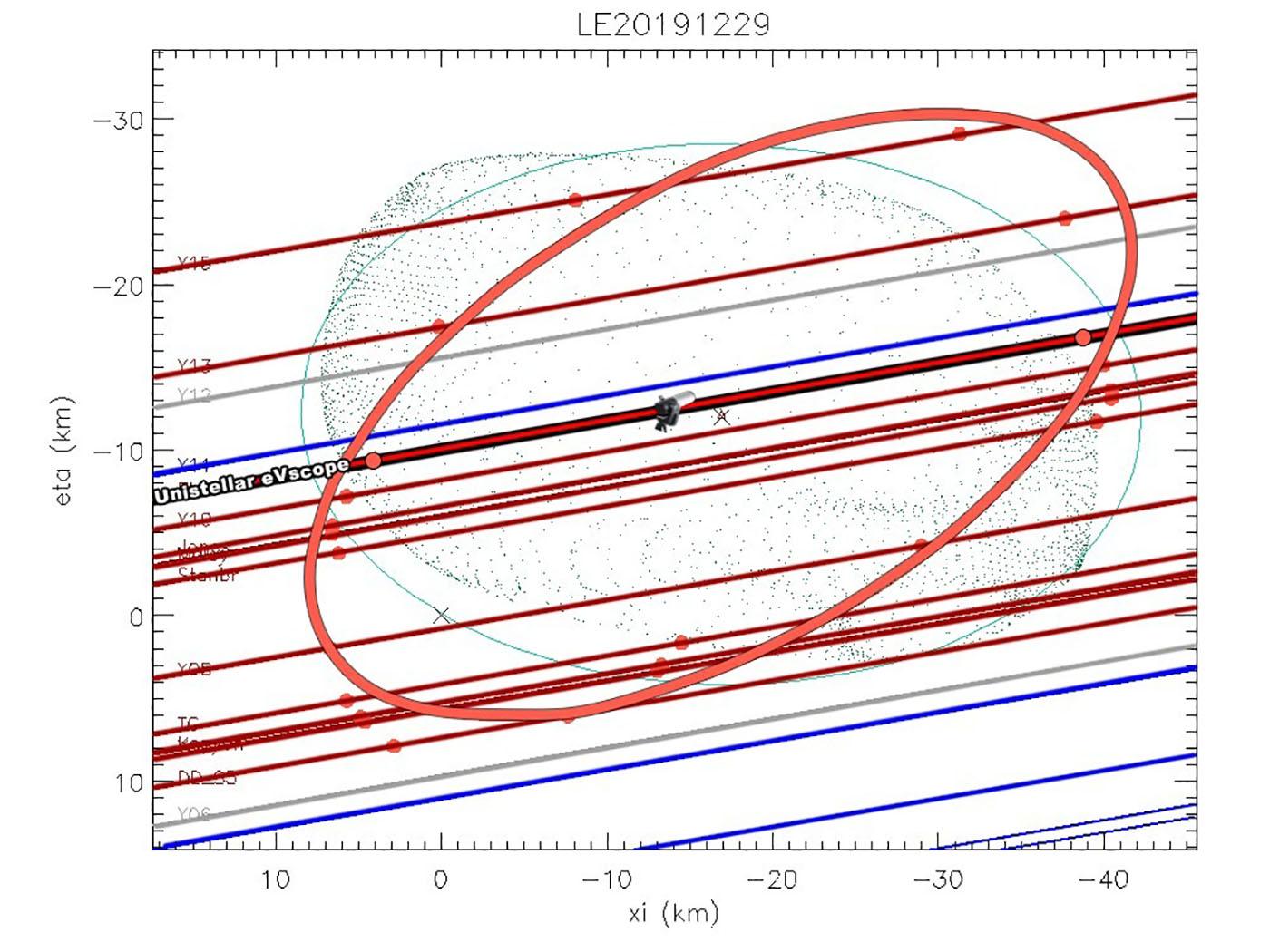
Marseille and Mountain View, January 7. Ten minutes for a time-validated asteroid occultation of NASA’s importance: this is what Unistellar recently achieved in Irvine, California, by being one of the first-time observers of a Leucus occultation.
Leucus is a Jupiter Trojan asteroid discovered in 1997 by the Beijing Xinglong Observatory. Around April 2028, NASA’s Lucy mission will fly by Leucus. It is therefore time to get a better understanding of Leucus’ shape, size and various characteristics.
On December 29, astronomy professionals and amateurs in North America attempted to observe a star occultation by Leucus. 19 observers got positioned well, among them 12 obtained a positive detection, one of them being the Unistellar team. In comparison with other chords, the Unistellar’s chord one (labeled below as FM1) is consistent. This result validates therefore one of the key parameters for an occultation, the time precision of an eVscope.
It’s all about timing. This occultation observation also highlighted the ease-of-use and the very fast setup of an eVscope: fifteen minutes before the occultation was supposed to happen, the campus were the Unistellar team was about to observe had decided to close its gate, leading the team to look erratically for a new location. In no less than ten minutes, the eVscope was set up again, ready to record the rare occultation on time.
“Once again, the Unistellar eVscope has provided valid scientific information to professional astronomers” explained Dr. Franck Marchis, senior astronomer at the SETI Institute and Unistellar’s Chief Scientific Officer. “ Not only does the eVscope allows anyone to observe galaxies and nebulae in unparalleled details, this backyard telescope is turning day after ay into an invaluable citizen astronomy tool”.
About Unistellar
Unistellar is the start-up behind the eVscope, a unique, compact, and user-friendly digital telescope. Its light-amplification technology allows users to observe galaxies, nebulae, and comets in unparalleled crisp and colorful details. In partnership with the SETI Institute, the Unistellar eVscope also allows anyone to contribute to astronomical discoveries while observing.
The Unistellar eVscope received a CES Innovation Award in 2018 in the category Tech for a Better World and has been nominated for a SXSW 2019 Innovation Award. It has raised more than $3 million through crowdfunding, and more than 2,500 digital telescopes have already been preordered, with the first ones delivered end of 2019.
Contacts
Unistellar:
Ludovic Nachury, Head of Communication:
press@unistellaroptics.com
+33 6 24 31 63 89
Science Contact:
Franck Marchis, Co-founder & Chief Scientific Officer at Unistellar and Senior Astronomer at SETI Institute
fmarchis@seti.org
+1 510 599 0604





